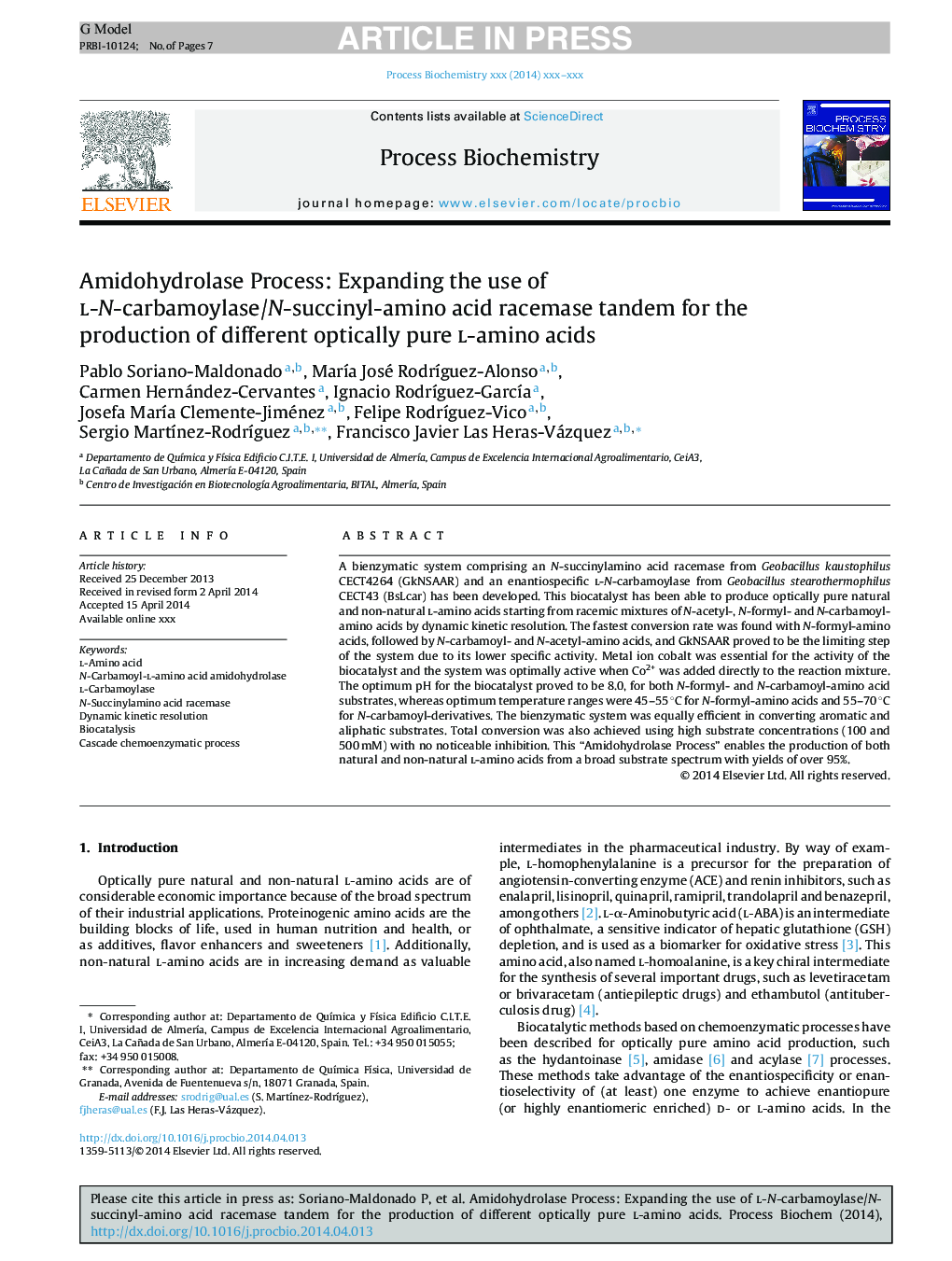| Article ID | Journal | Published Year | Pages | File Type |
|---|---|---|---|---|
| 10235399 | Process Biochemistry | 2014 | 7 Pages |
Abstract
A bienzymatic system comprising an N-succinylamino acid racemase from Geobacillus kaustophilus CECT4264 (GkNSAAR) and an enantiospecific l-N-carbamoylase from Geobacillus stearothermophilus CECT43 (BsLcar) has been developed. This biocatalyst has been able to produce optically pure natural and non-natural l-amino acids starting from racemic mixtures of N-acetyl-, N-formyl- and N-carbamoyl-amino acids by dynamic kinetic resolution. The fastest conversion rate was found with N-formyl-amino acids, followed by N-carbamoyl- and N-acetyl-amino acids, and GkNSAAR proved to be the limiting step of the system due to its lower specific activity. Metal ion cobalt was essential for the activity of the biocatalyst and the system was optimally active when Co2+ was added directly to the reaction mixture. The optimum pH for the biocatalyst proved to be 8.0, for both N-formyl- and N-carbamoyl-amino acid substrates, whereas optimum temperature ranges were 45-55 °C for N-formyl-amino acids and 55-70 °C for N-carbamoyl-derivatives. The bienzymatic system was equally efficient in converting aromatic and aliphatic substrates. Total conversion was also achieved using high substrate concentrations (100 and 500 mM) with no noticeable inhibition. This “Amidohydrolase Process” enables the production of both natural and non-natural l-amino acids from a broad substrate spectrum with yields of over 95%.
Related Topics
Physical Sciences and Engineering
Chemical Engineering
Bioengineering
Authors
Pablo Soriano-Maldonado, MarÃa José RodrÃguez-Alonso, Carmen Hernández-Cervantes, Ignacio RodrÃguez-GarcÃa, Josefa MarÃa Clemente-Jiménez, Felipe RodrÃguez-Vico, Sergio MartÃnez-RodrÃguez, Francisco Javier Las Heras-Vázquez,
